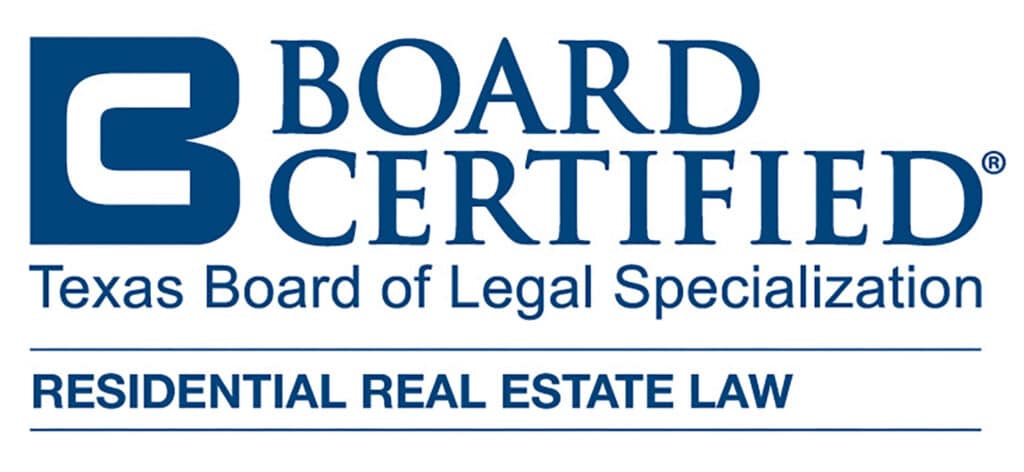
A General Warranty Deed Texas is the gold standard of deeds and is the most common deed used in real estate transactions. This deed contains unlimited warranties both express and implied. The “warranty” in a Warranty Deed is a warranty of title, and not a warranty of property condition. The seller is promising he or she owns the property without liens. However, the seller is not promising the property is in good condition, such as the roof, foundation, plumbing and other items. If the Seller wants to sell the property “AS IS”, a special clause needs to be added to the deed. Alternatives to a General Warranty Deed are the Special Warranty Deed and Deed without Warranty Deed. However, we recommend that you use a General Warranty Deed whenever possible. If the transfer is a gift or no money is being paid we recommend using a Gift Deed. A Gift Deed is simply a Warranty Deed where nothing is given for the deed. These are often used when transferring property to a family member. Good to know: The General Warranty Deed conveys full rights of ownership to the buyer and provides the buyer with the most protection. It guarantees an “unbroken chain” of title for at least the last 25 years. Using this deed, the seller warrants or guarantees that he or she is the rightful owner of real estate property. Also that he or she has the legal right to transfer title of the property. Furthermore, the seller pledges that there are no undisclosed encumbrances against the property. Additionally, that there are no pending legal actions or other title issues. Good to know: An encumbrance may be a limitation on, a claim against or liability against real estate. Encumbrances include liens, tax assessments, leases, easements, and encroachments. An encumbrance may restrict a property owner’s ability to transfer title.


 Laptop and white cup on a white desktop. Green plant in white pot to the left." width="500" height="450" />
Laptop and white cup on a white desktop. Green plant in white pot to the left." width="500" height="450" />
The most common Texas deed transfer used is the General Warranty Deed. This deed, which has the broadest warranties of title, provides a buyer with the most protection. On the other hand, a seller may prefer to use a Special Warranty Deed. A Special Warranty Deed only covers the time period during which the seller held title to the property rather than for all time.
Note: Some states may use a Quit Claim Deed or “Quick Claim” to transfer property. This is not the case in Texas. Quitclaims do not transfer property title in Texas. A Warranty Deed is generally recommended in Texas
Good to know: If the owner of the property is deceased, you may also need an Affidavit of Heirship to identify the new owners of the property before you can use a Warranty Deed.
Once the new owners have been properly identified in the property records, the new owners can sign a Warranty Deed to transfer the property.
To complete your property title transfer in Texas, the deed needs to be signed by the seller or grantor in front of a notary. Once the document has been properly acknowledged, it should be filed with the county clerk’s office in the county where the property is located.
Note: If you need to buy or sell property but cannot attend the closing of the property in person, a Power of Attorney [POA] may be used.
Good to know: Once the new deed has been recorded with the county clerk, the new property owner may be eligible for property tax exemptions which may reduce the taxes on the property.
After the tax records have been updated, the new owner may apply for any eligible tax exemptions.There are many tax exemptions available in Texas, including: General Residence Homestead • Age 65 or Older Exemption • Age 55 or Older Surviving Spouse of individual who qualified for Age 65 or Older Exemption • Disabled Person Exemption • 100% Disabled Veteran or Surviving Spouse of Disabled Veteran who received the 100% Disabled Veteran’s Exemption • Donated Residence Homestead of Partially Disabled Veteran or Surviving Spouse of Disabled Veteran who qualified for Donated Residence Homestead • Surviving Spouse of Member of Armed Forces Killed in Action • Surviving Spouse of First Responder Killed in Line of Duty • Partially Disabled Veteran or Survivor (not limited to your homestead). Tax exemptions can save you money. To claim your exemptions, contact your local Central Appraisal District.
At Texas Property Deeds, all General Warranty Deeds are prepared by a Texas licensed attorney Board Certified by the Board of Legal Specialization in Residential Real Estate Law. Additionally, clear recording instructions are included with each document we prepare. You provide us with the name of the current owner, the name and address for the new owner and the address for the property being transferred. We do the rest.

Having an experienced real estate attorney prepare your deed gives you peace of mind.